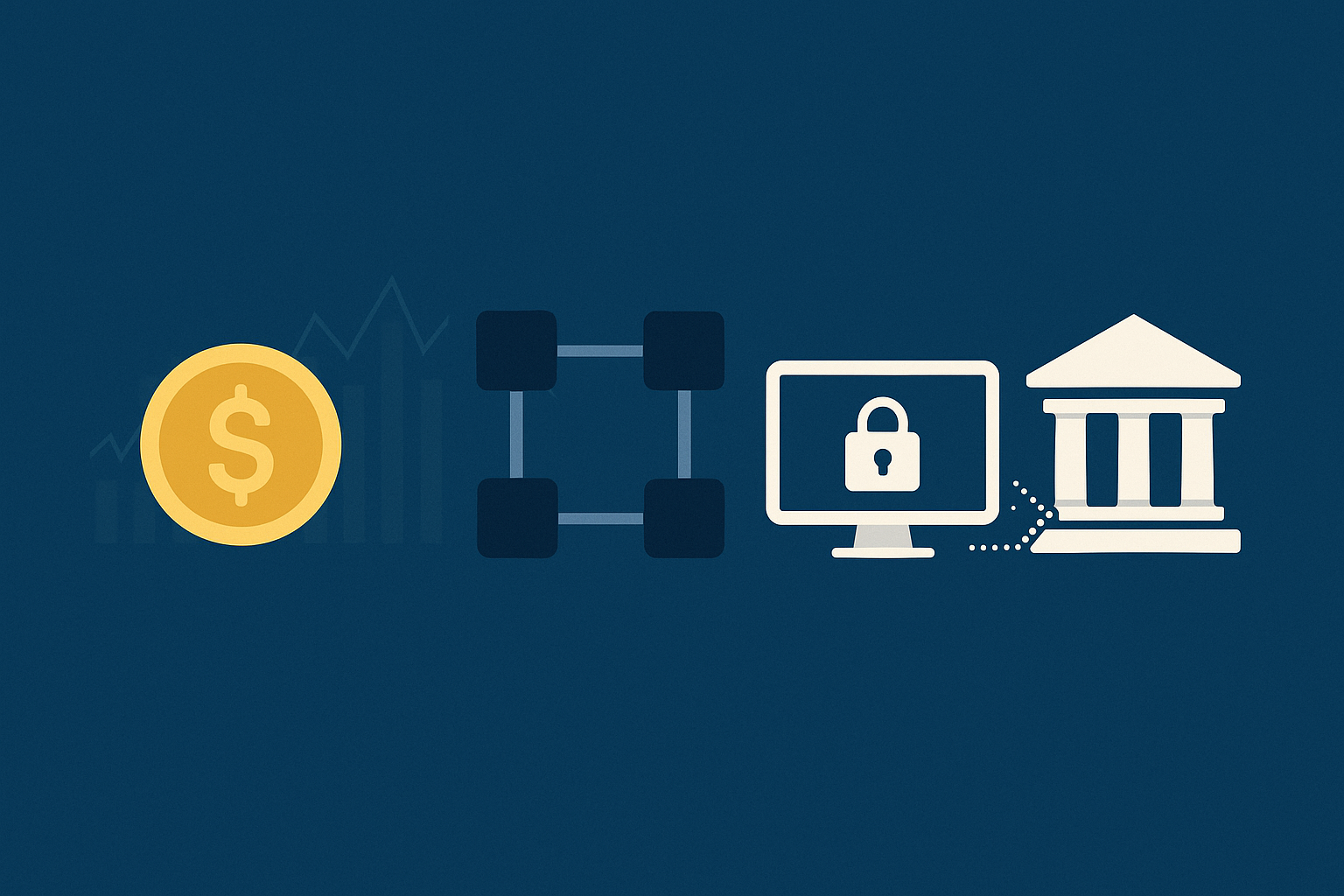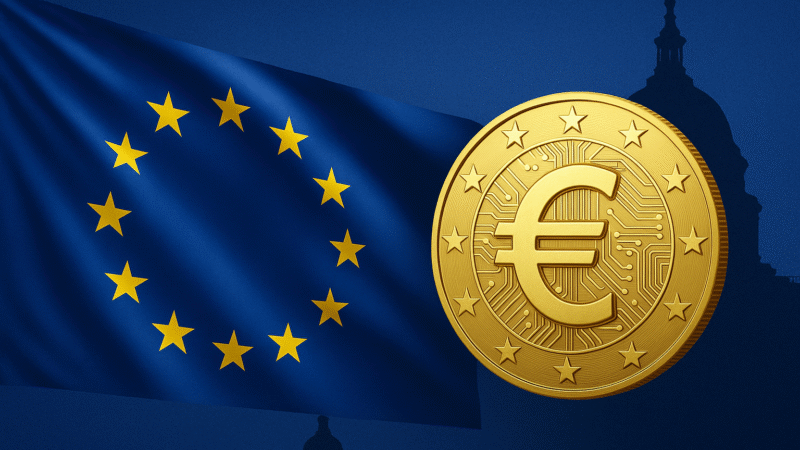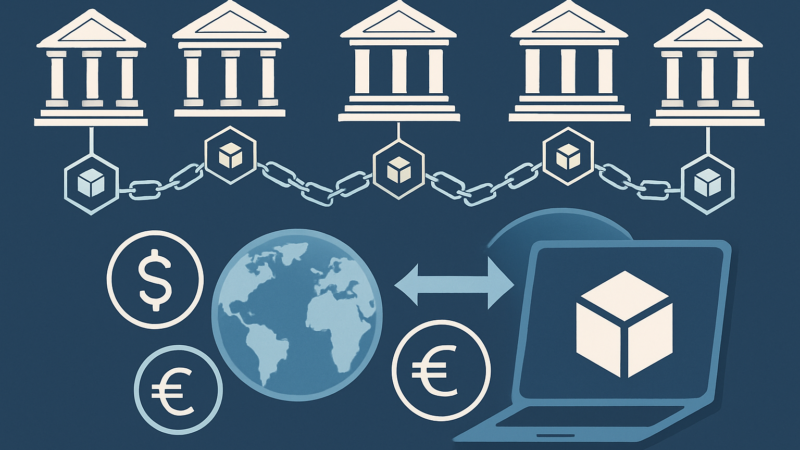Fortune 500 Firms Embrace Blockchain: A New Era Of Enterprise Innovation
Introduction
Blockchain technology has transcended the early hype of the 2010s and matured into a powerful infrastructure tool adopted by the world’s largest corporations. In a groundbreaking development, 60% of Fortune 500 firms have now integrated blockchain in some capacity, setting a historic benchmark for enterprise-level digital transformation. Even more compelling is the rapid response from small and medium-sized businesses (SMBs), who are leveraging blockchain to gain a competitive edge in increasingly decentralized global markets.
This article explores the depth of this transformation, from the Fortune 500’s use cases and investments to the cascading effect across the SMB sector. With 2025 emerging as the most pivotal year in blockchain’s enterprise journey, we dive into what’s driving adoption, the real-world applications, and what the future holds for businesses that embrace decentralized technology.
The Acceleration Of Blockchain In Fortune 500 Enterprises
The confirmation that 60% of Fortune 500 companies are now using blockchain is not just a statistic—it’s a signal that blockchain has moved beyond experimentation into mission-critical applications. Companies across various sectors, including finance, logistics, manufacturing, and retail, are using blockchain to streamline operations, increase transparency, reduce costs, and enhance security.
Tech giants like IBM, Microsoft, and Amazon Web Services (AWS) have already rolled out enterprise-grade blockchain platforms. For example, IBM’s blockchain initiatives in the food supply chain and pharmaceuticals are ensuring better traceability and fraud prevention. Similarly, JPMorgan’s Onyx platform, launched in 2020, now facilitates billions in daily interbank settlements using blockchain.
The success of these initiatives has helped convert blockchain from a buzzword into a boardroom strategy.
Why Now? Key Drivers Behind The 2025 Surge
Several critical factors have converged in 2025 to accelerate blockchain adoption at the Fortune 500 level:
1. Regulatory Maturity
Governments and regulatory bodies worldwide have developed clearer guidelines on digital assets and blockchain infrastructure. The U.S. Securities and Exchange Commission (SEC), the European Union, and emerging markets like India and Brazil have implemented frameworks that reduce risk for enterprise deployment of blockchain technologies. This legal clarity has allowed CFOs and CIOs to greenlight previously stalled blockchain projects.
2. Institutional Investment and Market Confidence
Over $50 billion was poured into blockchain and crypto-based institutional funds in Q1 2025 alone, according to a Coinbase institutional report. This unprecedented level of capital inflow boosted confidence among large enterprises, who now view blockchain as a safe bet rather than a fringe experiment.
3. Consumer Demand for Transparency
Consumers today demand ethical sourcing, data security, and product transparency. Blockchain solutions—particularly in logistics, food, and pharma—allow businesses to provide immutable proof of origin, handling, and compliance. This customer-facing utility has turned blockchain into a valuable brand asset.
4. Security Against Data Breaches
With cyberattacks costing global enterprises over $10 trillion annually, blockchain’s decentralized ledger offers a level of data protection not possible with centralized databases. Many corporations are adopting blockchain for internal recordkeeping, supply chain logging, and secure communications.
Sectors Leading The Charge
Not all industries are adopting blockchain at the same pace. Here’s a breakdown of the top sectors driving enterprise-level blockchain initiatives:
Finance and Fintech
The financial sector is at the forefront, using blockchain for cross-border payments, real-time settlements, smart contracts, and fraud detection. Legacy banks are adopting it to reduce transaction costs and comply with new digital finance regulations.
Supply Chain and Logistics
Companies like Walmart, Maersk, and FedEx are already reaping benefits from blockchain-based tracking systems. The technology allows for transparent, tamper-proof documentation of goods as they move through global supply chains.
Healthcare and Pharmaceuticals
Blockchain is helping healthcare giants manage patient records securely, trace pharmaceuticals, and streamline insurance claim processes. This has led to reduced fraud and improved patient data integrity.
Retail and eCommerce
Retailers are incorporating blockchain to validate product authenticity and optimize loyalty programs. Nike, for instance, uses blockchain to verify the authenticity of its limited-edition sneakers, cutting out counterfeiting.
The SMB Crypto Boom: Following The Giants
Perhaps the most surprising development of 2025 is how quickly SMBs are catching up. Historically constrained by limited budgets and technical resources, SMBs have now found ways to adopt blockchain at scale, aided by cloud-based solutions and open-source platforms.
Blockchain-as-a-Service (BaaS)
One of the game-changers for SMBs has been the rise of BaaS platforms from companies like Amazon, Microsoft, and Oracle. These services allow smaller firms to deploy blockchain solutions without having to invest in expensive infrastructure.
Tokenization of Assets
SMBs are now tokenizing equity, debt instruments, and even real estate to raise funds through decentralized finance (DeFi) platforms. This democratizes capital access and has led to a surge in innovation, especially in underserved markets.
Smart Contracts for Automation
Many small businesses are automating invoicing, contract enforcement, and supplier payments using smart contracts. This significantly reduces administrative costs and human error.
Retail Integration
From cafes accepting Bitcoin payments to boutique stores verifying product authenticity on-chain, SMBs are embedding blockchain into everyday operations. This not only improves efficiency but also signals modernity to tech-savvy consumers.
Challenges Still Remain
Despite the positive momentum, blockchain adoption isn’t without obstacles:
1. Technical Complexity
Blockchain architecture can be complex and resource-intensive, especially for SMBs without dedicated tech teams.
2. Interoperability Issues
Many blockchain platforms are not compatible with one another, making data exchange across systems a significant hurdle.
3. Regulation Variability
While regulation has matured, inconsistencies between countries and regions can complicate global operations.
4. Skills Gap
There’s a growing demand for blockchain developers, yet the talent pool remains limited. Both enterprises and SMBs struggle to hire or retain blockchain experts.
Enterprise + SMB Synergy: A New Ecosystem
The interaction between Fortune 500 firms and SMBs using blockchain is creating new economic synergies. Large corporations now require suppliers and service providers to be blockchain-compliant, effectively pulling SMBs into the ecosystem. This trickle-down effect amplifies the impact of blockchain beyond corporate headquarters and into local economies.
Moreover, SMBs are serving as innovation testbeds. Their agility allows them to experiment with blockchain use cases that larger corporations may be too risk-averse to test. Successful experiments are often scaled up through partnerships or acquisitions.
The Road Ahead: What To Expect By 2030?
If 2025 is the year of convergence, the next five years will likely see:
Full supply chain integration across industries using blockchain.
Widespread use of tokenized financial instruments.
Decentralized identity (DID) systems for individuals and businesses.
Blockchain-driven ESG reporting, satisfying both investors and regulators.
Cross-chain interoperability standards that allow seamless integration.
As blockchain becomes as essential as cloud computing or cybersecurity, firms that delay adoption risk obsolescence.
Conclusion
The milestone that 60% of Fortune 500 companies have adopted blockchain is more than a milestone—it’s a tipping point. These companies, with their vast resources and market influence, are setting the tone for the future of digital infrastructure. Simultaneously, the SMB boom ensures that innovation, agility, and inclusion remain at the heart of the blockchain movement.
As we navigate a global economy shaped by transparency, decentralization, and digital trust, blockchain is not merely a tool—it is a foundation. For any business—large or small—that intends to remain relevant and competitive in the decade ahead, blockchain adoption is no longer optional. It’s strategic. It’s urgent. And it’s happening now.



